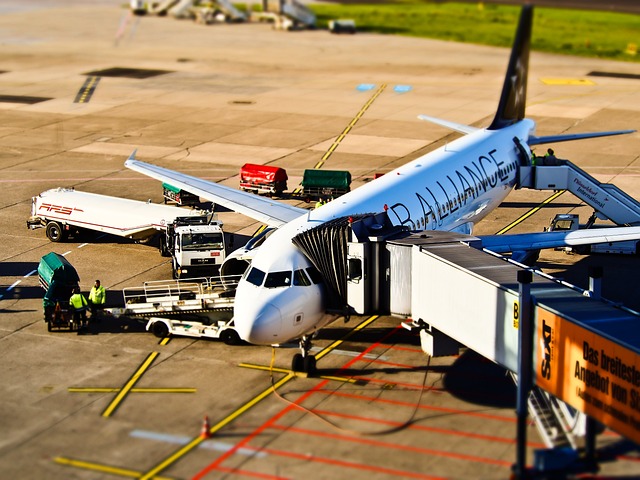Airport Jobs in Japan 2025 – Ground Operations, Security, and Passenger Assistance
In 2025, airports across Japan continue to recruit staff for a variety of essential functions, including ground operations, terminal services, passenger guidance, and security duties. Typical tasks may involve baggage handling, check-in assistance, helping travelers navigate airport procedures, and ensuring compliance with safety standards. These positions emphasize teamwork, time management, and clear communication in fast-paced settings. Many workplaces provide on-site training and structured support for individuals adjusting to the role, including those with limited Japanese language ability. Before applying, it is important to understand shift patterns, workplace expectations, and the responsibilities tied to maintaining safety and efficiency in busy airport environments.

Main Responsibilities for Staff in Japanese Airport Operations
Airport operations in Japan encompass numerous essential functions that ensure the smooth flow of passengers, baggage, and aircraft. Ground operations staff typically handle aircraft turnaround processes, including baggage handling, aircraft marshalling, and ramp operations. These roles require physical stamina as they often involve lifting luggage, operating equipment in various weather conditions, and adhering to strict safety protocols.
Security personnel are responsible for passenger screening, monitoring restricted areas, and ensuring compliance with international aviation security standards. Japan’s airports maintain exceptionally high security standards, requiring vigilance and attention to detail from security staff.
Customer service representatives work at information counters, check-in desks, and gates to assist passengers with inquiries, boarding procedures, and special needs assistance. These positions require Japanese language proficiency, with English and other foreign language skills increasingly valued at international terminals.
Teamwork and Communication in Passenger Service Roles
Effective teamwork and clear communication stand as fundamental pillars in airport operations across Japan. Passenger service agents must coordinate seamlessly with colleagues across different departments to address passenger needs promptly. This includes regular communication with gate agents, baggage handlers, and airline representatives to resolve issues like missed connections, delayed flights, or lost luggage.
Japanese airports emphasize omotenashi (Japanese hospitality), requiring staff to communicate with cultural sensitivity when assisting domestic and international travelers. Service staff receive specific training in proper keigo (honorific language) for Japanese passengers and appropriate English communication styles for foreign visitors.
Daily briefings are standard practice for most airport teams, ensuring all staff members understand operational changes, special requirements, and potential challenges for each shift. During busy periods or disruptions, communication becomes even more critical, with established protocols for escalation and information sharing.
Training Systems and Support Available for New Employees
Japanese airports have developed comprehensive training programs to prepare new staff for the demands of aviation work. Initial training typically spans 2-4 weeks, covering airport familiarization, safety procedures, security protocols, and customer service standards. For specialized positions like ground handling or security, additional technical training may extend this period.
Many major airports utilize a senpai-kohai (mentor-mentee) system where experienced staff guide newcomers through practical aspects of the job. This hands-on approach helps new employees adapt to the fast-paced environment while learning established procedures and best practices.
Ongoing professional development includes regular safety refresher courses, updated security training, and service quality workshops. Major airports often provide language learning support for staff seeking to improve their English or other foreign language skills to better assist international travelers.
Understanding Shift Schedules and Working Conditions in Airports
Airport operations run 24/7, requiring staff to work in shifts that may include early mornings, late nights, weekends, and holidays. Typical shift patterns include early (5:00-14:00), mid-day (10:00-19:00), and night shifts (18:00-03:00), though exact times vary by airport and position. Many roles operate on rotating schedules that change weekly or monthly.
Working conditions vary significantly by position. Ground handlers work primarily outdoors in varying weather conditions, while customer service staff spend long periods standing at counters or gates. Security personnel must maintain constant vigilance throughout their shifts, which can be mentally taxing.
Japanese airports typically provide comprehensive benefits including transportation allowances, meal subsidies, and uniforms. Many airport positions offer career advancement opportunities, though these often require gaining experience across different operational areas and potentially obtaining additional certifications.
Application Steps and Documentation Needed for Airport Positions
The application process for airport jobs in Japan typically begins with online submissions through airport authority websites or employment agencies specializing in aviation recruitment. Required documentation generally includes:
-
Resume/CV in Japanese format (rirekisho)
-
Cover letter explaining interest in aviation
-
Copy of academic qualifications or relevant certifications
-
Photo identification (passport or residence card for foreign applicants)
-
Proof of Japanese language proficiency (JLPT N2 or higher preferred for customer-facing roles)
For foreign applicants, a valid work visa or residence status that permits employment is essential. Most entry-level positions require at least conversational Japanese ability, though requirements vary by position and airport.
The selection process typically involves multiple stages: document screening, aptitude tests, group interviews, and individual interviews. Security-related positions require additional background checks. Successful candidates usually undergo medical examinations before receiving final offers.
For those interested in airport employment in Japan, preparation should begin 3-6 months before intended start dates, as security clearances and training schedules can extend the onboarding timeline considerably.
Information for Prospective Airport Employees
This article provides general information about airport employment in Japan and should not be interpreted as advertising specific job openings. Actual job availability, requirements, and conditions vary by airport, employer, and economic conditions. Prospective applicants should research current opportunities through official airport authority websites, licensed recruitment agencies, and official job boards for the most accurate and up-to-date information on available positions.




